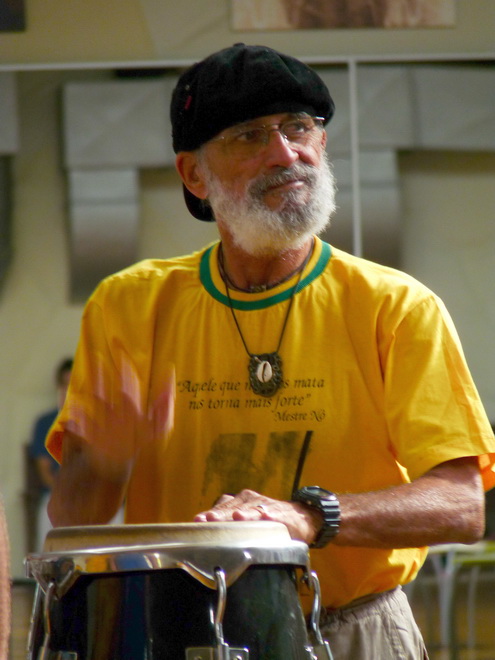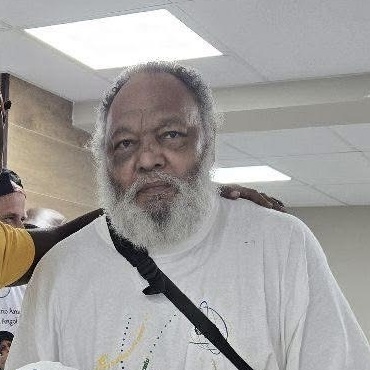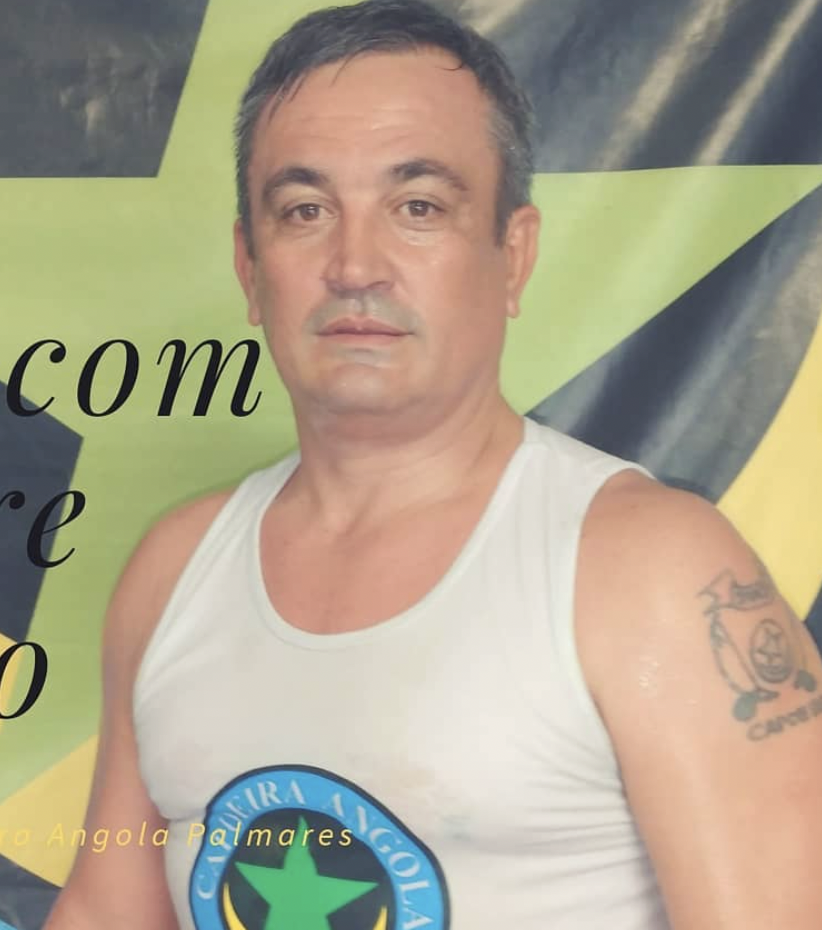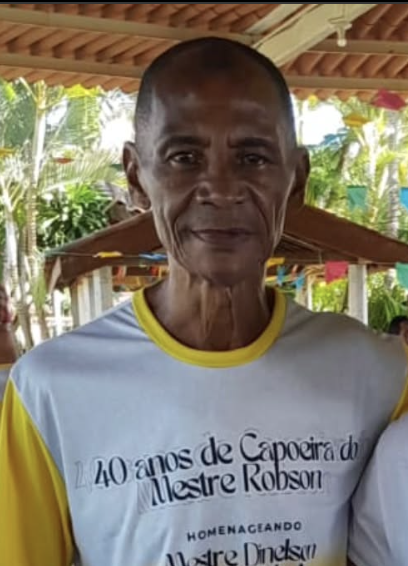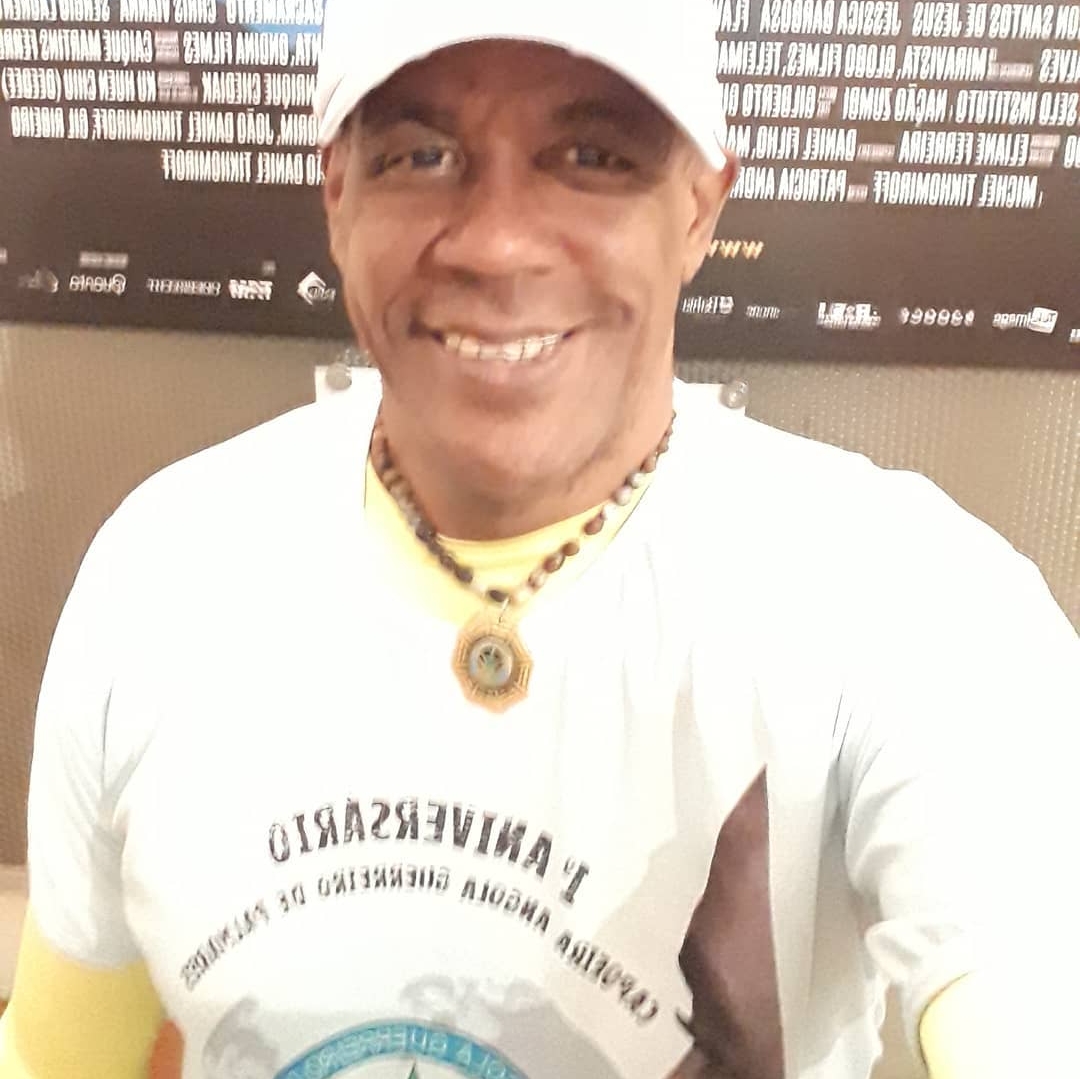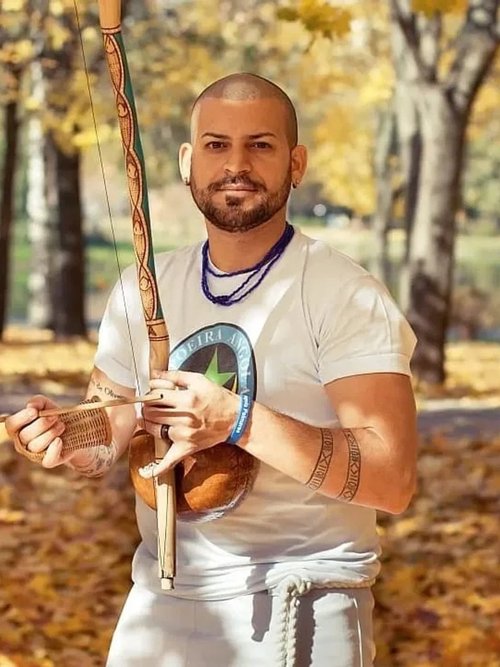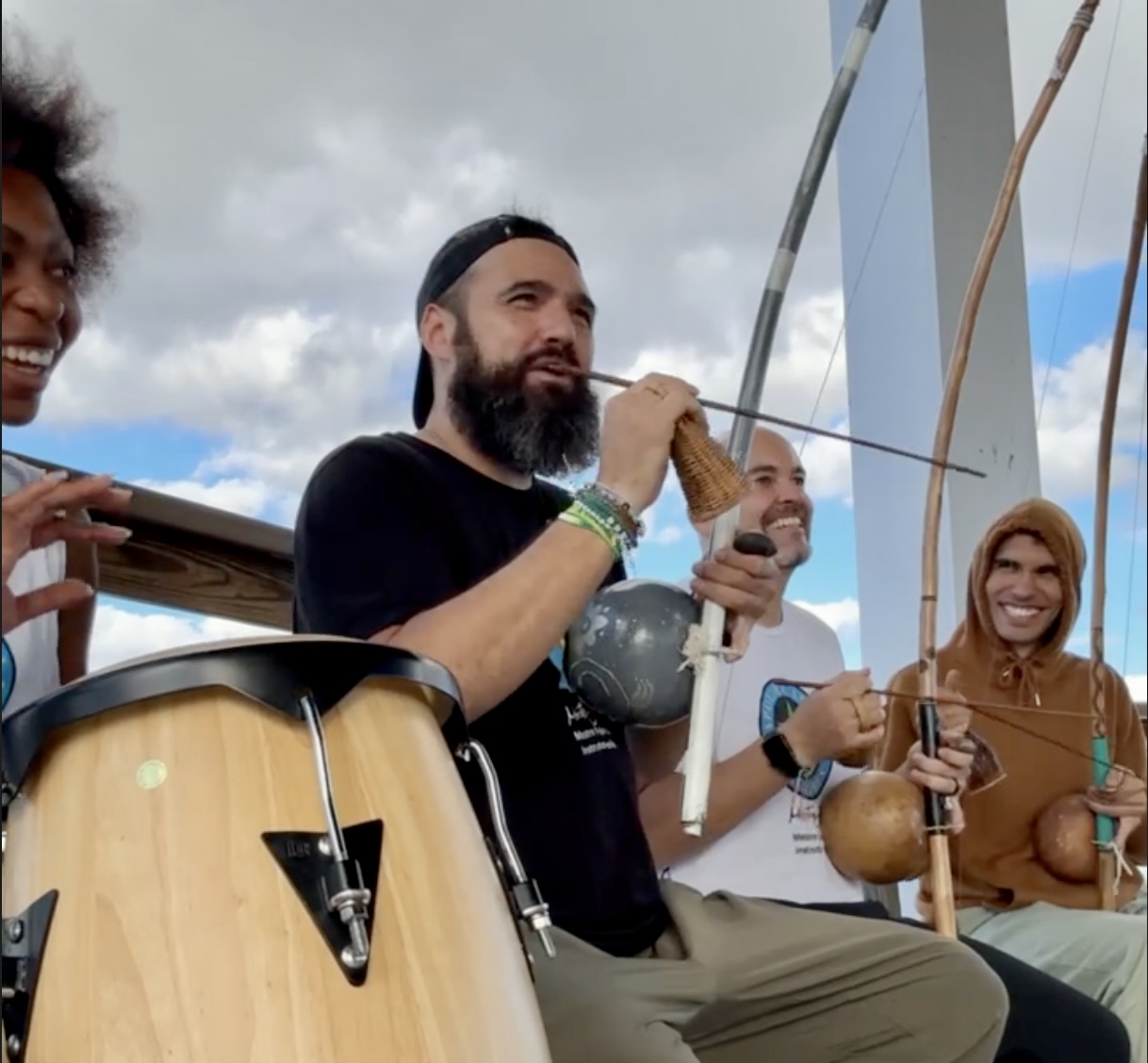- Lives in: Ilha de Itaparica, Bahia, Brasil
- Date of Birth: 22-Jun-1945
- Learned from: Mestre Pierrô, Mestre Cutica, Mestre Nilton
- Capoeira Style: Angola
Biography:
Norival Moreira de Oliveira — Mestre Nô
Born June 22, 1945 • Coroa, Itaparica • Capoeira Angola Palmares
Born in the village of Coroa on Itaparica Island, Norival Moreira de Oliveira grew up inside the sound of the berimbau and the discipline of the roda. Family brought him to Massaranduba when he was seven, a few streets from the church of Bonfim. There the young Norival met the brothers Nilton and Cutica, respected capoeiristas who walked him to the elders of the Lower City lineage. With Pierrô and Zeca do Uruguai he learned that rhythm is law and that elegance is nothing without respect. Their street rodas drew giants like Waldemar and Traíra, and the boy from Coroa learned to read a circle before he could read a book.
His steps were anchored even earlier. In 1949 he trained with his grandfather Olegário, building the base that later carried him through Massaranduba’s circles and into a lifetime of teaching. By 1964 he received a diploma from Nilton and Cutica and opened his first academy. A second followed soon after on Santa Clara Street. In 1969 he created Academia de Capoeira Angola Orixás da Bahia, and in 1979 he founded Grupo de Capoeira Angola Palmares da Bahia, the seed of what would become one of the largest Capoeira Angola organizations in the world.
As a founder, teacher, and community builder, Mestre Nô shaped institutions that helped protect tradition while welcoming new generations. He established Retintos, Orixás da Bahia, and Capoeira Angola Palmares. He later led the Associação Brasileira Cultural de Capoeira Palmares (ABCCP) and served as president of the Associação Brasileira de Capoeira Angola (ABCA), an association formed to safeguard the authenticity of Capoeira Angola. His students number in the thousands. More than seventy five reached the rank of Mestre, which is why many call him the mestre dos mestres, the master of masters.
His path stretches well beyond Bahia. He organized important encontros, guided batizados like Ajagunã de Palmares on the Island of Santa Catarina, and carried Capoeira Angola to the United States and Europe. The International Capoeira Angola Palmares Seminar in Coroa Vera Cruz became a yearly anchor where he taught not only movement and music but also the philosophy that holds the art together.
Today Mestre Nô lives with his family on Itaparica Island. He travels, teaches, and counsels groups across Brazil and abroad. His message is simple and demanding. Honor the ancestors. Let the berimbau speak first. Build community that lasts longer than any one player. In the long story of Bahia, Mestre Nô stands as proof that a neighborhood circle can become a worldwide school without losing its soul.
